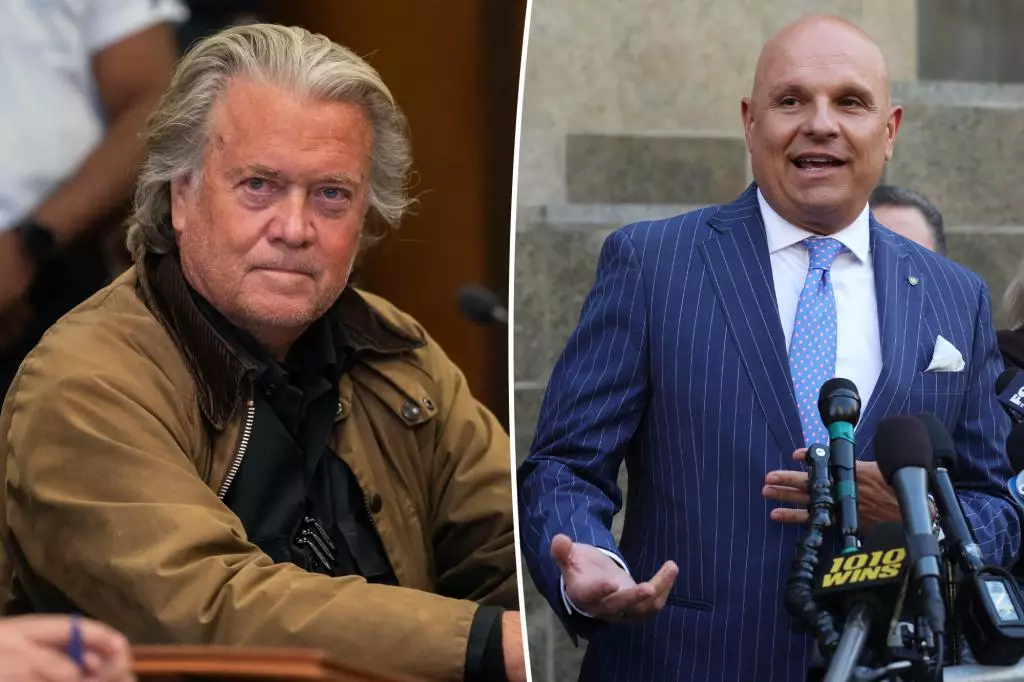Steve Bannon, a prominent figure in American politics and former advisor to President Donald Trump, now finds himself embroiled in serious legal challenges that spotlight his controversial past and the implications of political fundraising. Bannon’s recent decision to hire Arthur Aidala, a well-known attorney with a history of defending high-profile clients, signals his intent to mount a vigorous defense against accusations of fraud. This move suggests that Bannon is bracing for a complicated legal battle as he tries to reshape public perception in light of his mounting legal troubles.
Bannon has been accused of defrauding donors who contributed to the non-profit initiative “We Build The Wall,” a project that claimed to raise funds for constructing a barrier at the US-Mexico border. The Manhattan District Attorney’s office, led by Alvin Bragg, has charged Bannon with multiple offenses, including fraud and money laundering. While Bannon has entered a plea of not guilty, the implications of these charges are severe. If the court finds him guilty, he could potentially face a prison sentence ranging from five to 15 years, a fate that emphasizes the gravity of the allegations against him.
The backdrop for Bannon’s case includes previous convictions of his associates, Brian Kolfage and Andrew Badolato, who have both received prison sentences for their involvement in the fundraising scheme. The U.S. Attorney’s Office described their actions as deceptive and manipulative, soliciting donations under false pretenses and subsequently misappropriating those funds. The fact that Bannon was connected to Kolfage, who allegedly mismanaged the influx of donations—even after promising not to draw a salary—raises serious questions about Bannon’s role in the operations of the non-profit organization.
Aidala’s proclamation that they aim to clear Bannon’s name, labeling the case as a politically motivated persecution, reflects a defense strategy that taps into the broader narrative surrounding political divides in current American society. This method of framing the accusations not only serves to rally Bannon’s supporters but also positions him as a victim of a biased political system. By presenting himself as a defender of patriotism against what he perceives as unjust legal actions, he may hope to galvanize his base and maintain his influence among right-wing factions.
Adding another layer of complexity to the case is Bannon’s history of incendiary comments and actions, including his ban from Twitter following a threat against Dr. Anthony Fauci. His controversial notoriety may play both to his advantage and detriment; it solidifies his standing among certain groups while simultaneously attracting scrutiny from law enforcement and political adversaries. Additionally, his brief incarceration for non-compliance with a Congressional subpoena concerning the January 6 riot underscores an ongoing tension between his political ambitions and legal challenges.
The forthcoming court date on February 25 looms large as Bannon navigates these turbulent waters of legal strife. With the eyes of both supporters and critics focused on him, the outcome of this case will significantly impact not just his future but also the political landscape he represents. As he works closely with Aidala, the strategies they employ and the public discourse they generate may well define Bannon’s legacy in this convoluted chapter of American political history.

